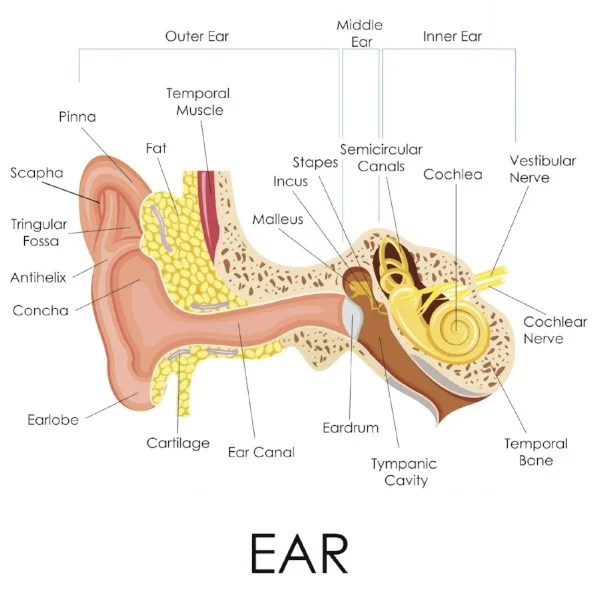Vestibular System
The vestibular system is a finely tuned sensory apparatus responsible for postural stability and the control of eye movement. This intricate system is located deep within each inner ear, consisting of minute organs such as the utricle, saccule and semicircular canals. Information detailing equilibrium, motion and spatial orientation is relayed equally from each ear to the brain where it is assessed alongside other sensory information from our visual and musculoskeletal systems. With this vital information, our brain has the ability to control our head, trunk and eye movements in response to the demands of our activities and the environment. Vestibular dysfunction can occur insidiously or as a result of trauma, disease, or ageing.
When impaired, you may experience a range of the following symptoms:
dizziness or vertigo (spinning) or sensation of movement
instability or spatial disorientation
difficulty walking or lack of coordination or clumsiness
difficulty visually focusing on stationary or moving objects
hearing changes (loss and fluctuation), tinnitus (ringing, whooshing or buzzing) or sensation of fullness in ears
poor concentration and focus
mental and physical fatigue
nausea and vomiting
reduced self esteem, anxiety, panic attacks or depression
The above symptoms can vary significantly in severity and duration for each individual and depending on the underlying cause of the vestibular dysfunction. Nevertheless, they can significantly impact your day to day function. If left untreated, these symptoms can worsen and broadly affect your capacity to resume work, participate in regular social pastimes and impair your confidence with everyday activities.
Some of the most common vestibular disorders are:
Benign Paroxysmal Positional Vertigo (BPPV),
Vestibular Neuritis or Labyrinthitis and
Meniere’s Disease
Vestibular Migraine
A thorough understanding of your condition’s history and symptoms, along side a detailed bedside assessment of your vestibular system and balance is required to aid in the diagnosis of your condition. These tests can cause transient fluctuations of your symptoms.
Physiotherapy Management of Vestibular Disorders:
Many vestibular disorders are treatable and our physiotherapists are highly experienced in helping provide the necessary assessment, treatment and education regarding your condition and its management. Treatments may include performing Canal Re-positioning Techniques (CRTs) for BPPV, providing habituation and gaze stability exercises, and providing balance retraining exercises that are tailored to your needs so you get better sooner. We work closely with neurologists who specialize in vestibular dysfunction and, when appropriate, can coordinate referrals or further testing of symptoms with them.


